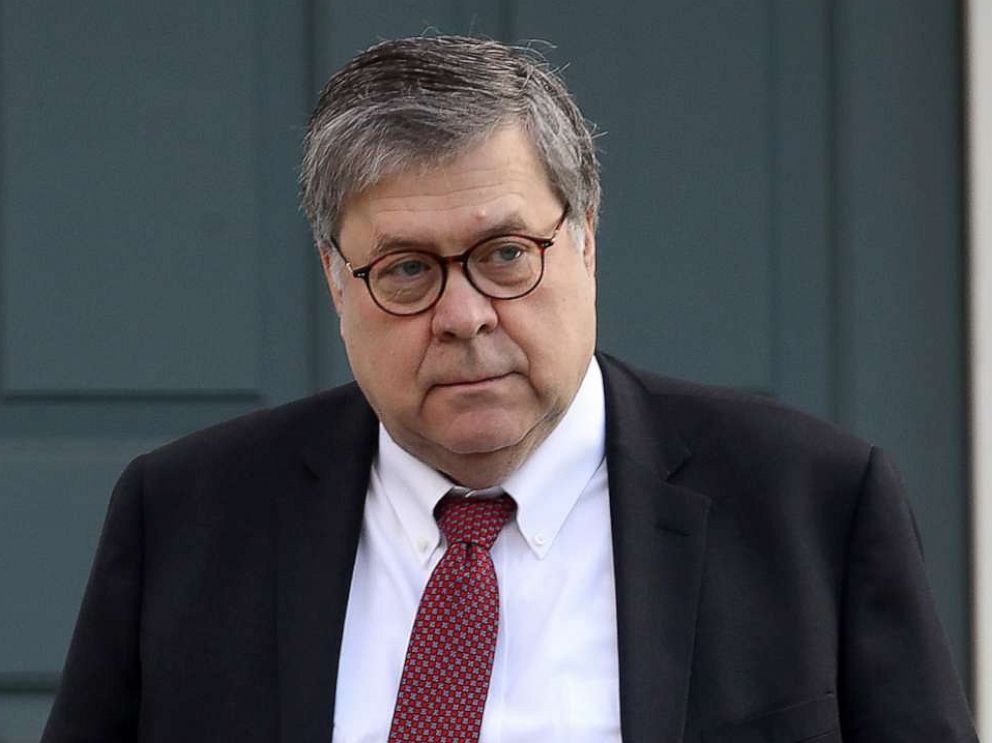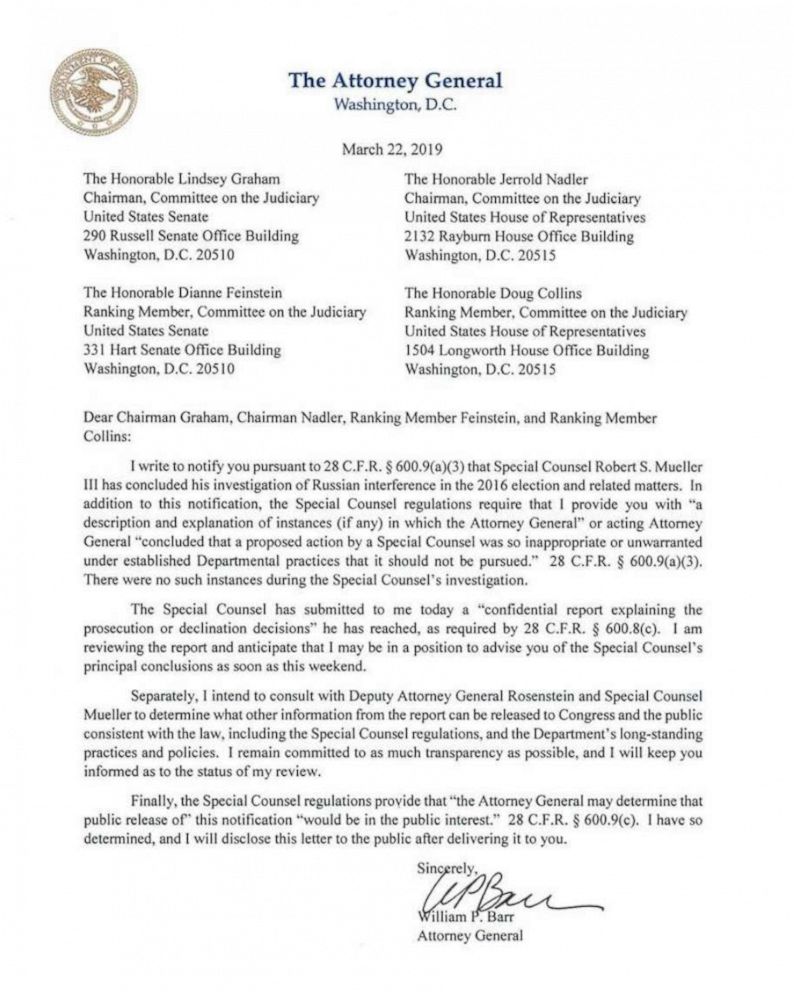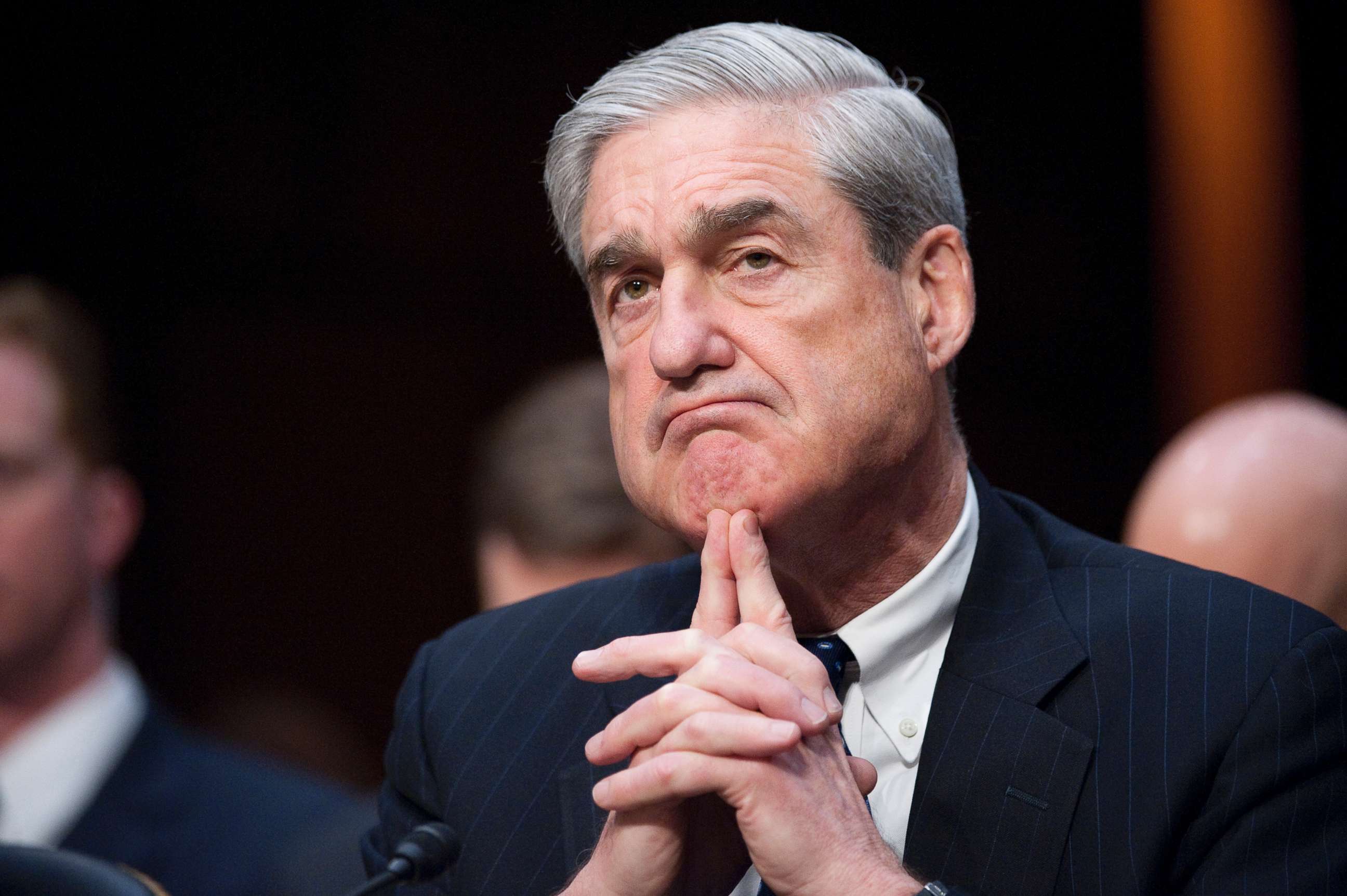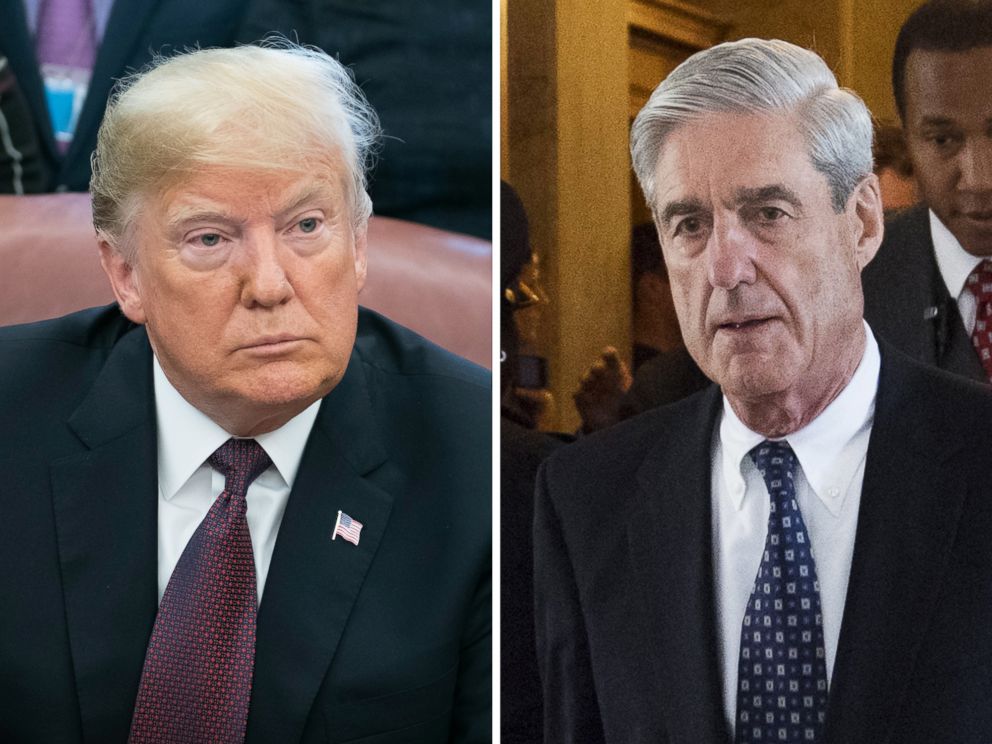Mueller report handed off to Department of Justice; won't recommend any further indictments, a senior official says
Attorney General William Barr will now review the report.
Special counsel Robert Mueller's much-anticipated report -- the product of nearly two years of investigation -- will not include any further indictments, according to a senior Department of Justice official.
The report was handed to the Justice Department for Attorney General Bill Barr’s review, and Congress has been notified of the transfer late Friday afternoon, according to a Justice Department spokeswoman.
According to federal regulations, the special counsel's final report should be "a confidential report explaining the prosecution or declination decisions reached by the Special Counsel."
After reviewing Mueller's report, Barr will then send what he has described as his own "report" on the Mueller investigation to the top Democrats and Republicans on the House and Senate judiciary committees. Barr has promised to be as transparent as possible, but it's unclear how extensive or detailed Barr's own "report" to Congress will be.

In a letter to the leaders of the House and Senate Judiciary committees, Barr wrote that he is reviewing the report and anticipates that he "may be in a position to advise you of the Special Counsel's principal conclusions as soon as this weekend." He continued that, separately, he intends to "consult with Deputy Attorney General Rod Rosenstein and Special Counsel Mueller to determine what other information from the report can be released to Congress and the public consistent with the law."
Sources who have spoken to President Donald Trump told ABC News that his initial reaction to Friday’s news was that he's “glad it’s over."
"The next steps are up to Attorney General Barr, and we look forward to the process taking its course. The White House has not received or been briefed on the Special Counsel’s report," White House press secretary Sarah Sanders tweeted on Friday afternoon.
Rudy Giuliani and Jay Sekulow, counselors to the president also said in a statement that they are "pleased" the report was delivered.
Mueller and his team investigated how far the Kremlin went to interfere in the 2016 presidential election, including trying to determine whether any Americans may have helped those efforts.
At the heart of Mueller’s probe were two Russian operations: the spread of disinformation on social media, and the release of thousands of sensitive emails stolen by hackers from the Democratic National Committee and other Democratic targets.

Mueller’s team has charged 25 Russian nationals and three foreign companies for their alleged role in those operations.
In appointing a special counsel to investigate, however, Deputy Attorney General Rod Rosenstein also directed Mueller to look into “allegations” of possible “coordination” between Russian operatives and associates of President Donald Trump.
Over and over again, Trump and his Republican allies have derided the investigation as a “witch hunt.” But Rosenstein, FBI Director Chris Wray and now-attorney general William Barr have each explicitly disputed that description.
“We follow the rule of law,” Rosenstein insisted last year. “[And] when we confront foreign interference in American elections, it’s important for us to avoid thinking politically as Republicans or Democrats and instead to think patriotically as Americans.”
While looking into allegations of “coordination” with Trump’s 2016 campaign, Mueller did find that a campaign adviser knew early on from a Russian operative that the Kremlin had compiled “dirt” on Hillary Clinton, and recent court filings said Trump’s campaign repeatedly tried to elicit information about upcoming releases of Clinton-related documents stolen from the DNC and others.

In court filings, Mueller also documented how Trump’s personal business sought real estate deals in Moscow even after Trump became the Republican nominee for president, and documented how – while the Obama administration was still in the White House – senior members of Trump’s national security team tried to influence official actions taken by Russia.
According to federal prosecutors, Mueller also found that Trump’s associates routinely lied to them about all of it.
At least four Trump associates, including Trump’s former national security adviser Michael Flynn, have pleaded guilty to lying to federal agents during the Russia-related investigation.
Another Trump associate, the president’s former attorney Michael Cohen, has pleaded guilty to lying to Congress about Trump’s business dealings in Moscow. And former Trump adviser Roger Stone has been charged with lying to Congress about his alleged role in tracking information stolen from Democrats during the 2016 campaign.
“The investigation has identified 199 different criminal acts,” Rep. Hakeem Jeffries, D-New York, noted during a recent House hearing. “So let’s be clear: The investigation into Russia’s attack on our democracy is not a witch hunt, it’s not a fishing expedition, it’s not a hoax, it’s not a lynch mob. It’s a national security imperative.”
Mueller’s investigation grew out of a probe the FBI launched in late July 2016.
By then, the FBI was already scrutinizing Trump campaign manager Paul Manafort’s business dealings with pro-Russian officials in Ukraine – dealings that have since landed Manafort in jail. And the FBI was keeping tabs on Trump adviser Carter Page, who was previously targeted for recruitment by Russian spies and had raised eyebrows with a trip to Moscow in mid-July 2016.
But claims by Trump adviser George Papadopoulos – that the Russians were touting “dirt” on Clinton – really set off alarms inside the FBI.
“If any Americans were part of helping the Russians [attack] us, that is a very big deal,” James Comey, who was FBI director at the time, later told lawmakers.
Several weeks after formally launching the Russia probe, counterintelligence agents leading the investigation in Washington received a so-called “dossier,” which had been compiled at the behest of Democrats and detailed uncorroborated allegations of coordination between Trump’s campaign and the Kremlin.
Some of the allegations involved Page, who was already on the FBI’s radar, so agents began secretly intercepting his communications. Page has never been charged with any crimes.

The wide-ranging investigation continued even after Trump took office. After Jeff Sessions became attorney general, he recused himself from oversight of the FBI’s Russia-related probe, citing his previous advocacy for Trump on the campaign trail.
Rosenstein subsequently assumed oversight of the investigation.
And then Trump shocked the federal law enforcement community: He fired Comey.
The move prompted Rosenstein to appoint Mueller to take over the whole matter, including a review of whether Comey's firing and other actions meant Trump improperly tried to obstruct the probe.
Comey later alleged that in a private meeting with Trump before his removal, the president directed Comey to “let [Flynn] go.”
Mueller has not released any evidence suggesting Trump committed a crime related to Russian efforts.
However, Mueller did uncover evidence of other possible crimes and referred those cases to other federal prosecutors.
The U.S. Attorney’s Office in Manhattan ended up tying Trump to federal campaign violations, alleging that – in the midst of the 2016 presidential campaign – Trump personally directed Cohen to silence two woman claiming affairs with Trump by making illegal payments to them.
Cohen has pleaded guilty for his role in the matter, but no other charges have been filed.
ABC News' John Santucci and Kyra Phillips contributed to this report.



